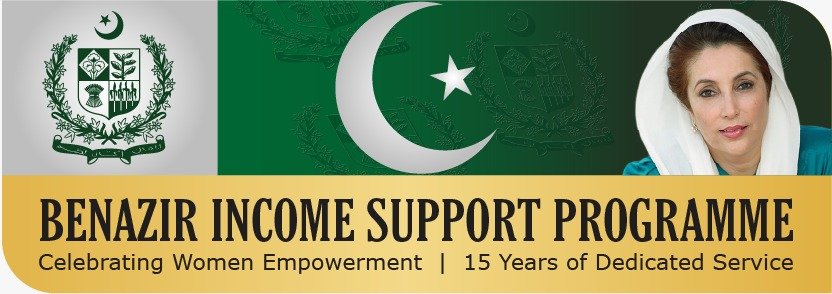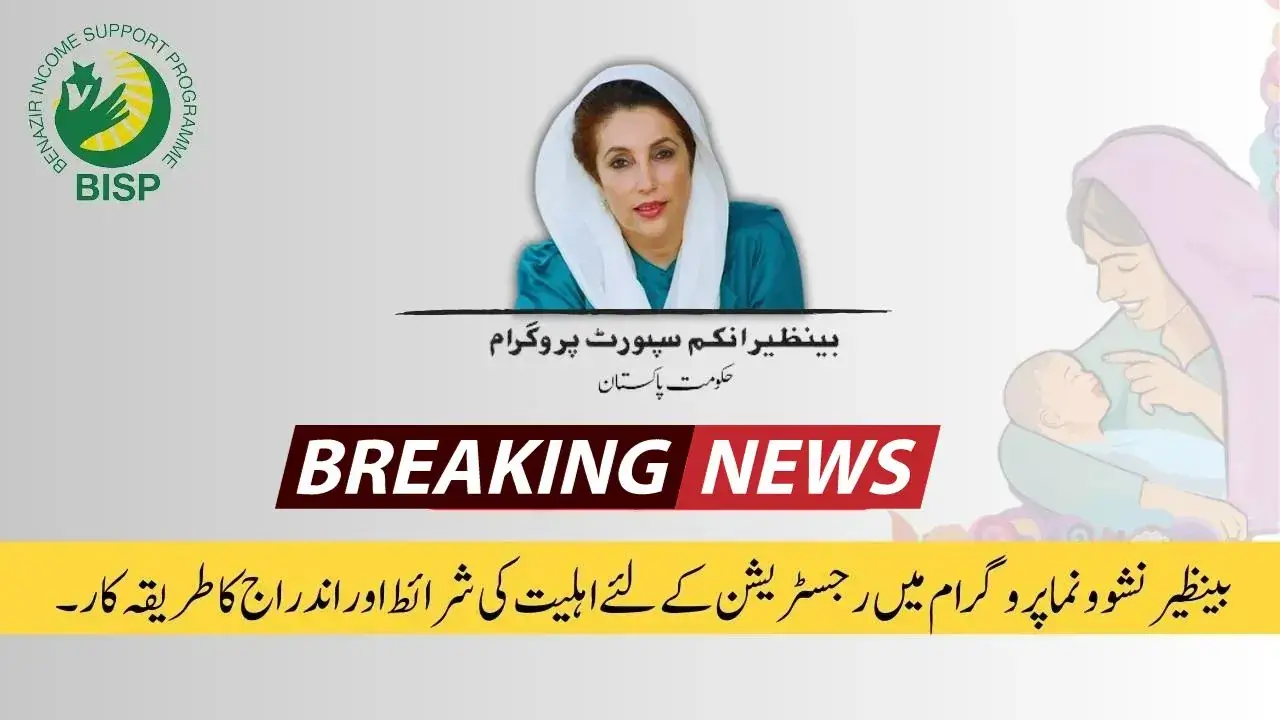The Benazir Nashonuma Programme is a part of the Benazir Income Support Program (BISP). It aims to help poor pregnant women, lactating mothers, and their young children in Pakistan facing major problems of hunger and stunted growth. When launched in 2020, the system will offer eligible individuals conditional coin payouts and significant exercise options. This is to improve nutritional outcomes for mothers and young children.
Project Area
Initially, this program was started in 14 districts of the country. After the successful implementation of the pilot program, the BISP Board approved the roll-out of the program across the country.
Currently, the Nashonoma program is running in 158 districts of the country with a network of 512 Nashonoma centers including mobile sites.
Motives Behind Benazir Nashunoma Programme
Child feeding is an ongoing problem in Pakistan as many children are malnourished (40.2% are underweight, 28.9% are underweight, and 17.7% are wasting). With so much hunger, Pakistan is the second most undernourished country in the region.
When a child is born, the first 1000 days are the golden period for building a strong foundation for future success. During this time, many changes are taking place, and the development of the child’s brain is very flexible. Human capital is built through investments made in the early years of life. In today’s market, human capital is an important source of economic growth.

The main Objectives of Benazir Nashunoma
The main objectives of the Benazir Nashnuma Program are:
- Prevent chronic malnutrition and stunting in children under two years of age.
- Anemia and micronutrient deficiency in children and women.
- Help pregnant women gain weight.
- Create awareness about nutrition and health for mothers and children.
- Get more people to use health and nutrition services that already exist.
Eligibility Criteria
Those who wish to join the Benazir Nashunoma program must fulfill the following conditions:
Applicants should be of low income and have a valid CNIC.
They must also be pregnant, breastfeeding, or have a child under two years of age.
They should also be prepared to attend health and nutrition awareness sessions and ensure that their child gets immunizations and regular check-ups.
Benefits of the Program
The following benefits are given to those who sign up for the Benazir Nashnom Wazaif program.
• Cash payment of Rs.4500 every three months to support health and food needs
• Rs.2,000 per quarter for boys and Rs. 2,500 per quarter for girls.
• Special healthy food for mothers and babies.
• Free health services, such as prenatal check-ups and child immunizations.
• Regular health and nutrition education sessions.
• Advice on breastfeeding and other breastfeeding methods.
Steps for Registration
Eligible women can sign up for the Nashonoma program in the following ways.
You can register in person at the BISP Tehsil Office or your nearest Nashunoma Center and get help in filling out the form.
You can also download the BISP mobile app, fill out the form, and submit it online.
You can also call the BISP helpline at 0800-26477 to register over the phone.
Visit the BISP website, fill out the web registration form, and submit it online.
Applicants should give correct information and attach copies of necessary documents like the child’s B-form, CNIC, etc.
Program Implementation and Expansion
Benazir Nashunoma was first tested in 14 regions of Pakistan. After successfully piloting the program, the BISP board agreed to make it available to everyone in the country. As of August 2022, Nashunoma centers are open in 45 districts. By the end of the year, they hope to have places available for assistance in all districts.
Monitoring and evaluation
General tracking and assessment functions are carried out by BISP and its associated companies to assess the impact and effectiveness of the Beneezer Development Programme. These include:
Use of Nashonuma MIS to track registration numbers and compliance
We will conduct baseline and end-line surveys to see how stunting rates and other indicators of malnutrition change.
Keep track of how many people attend health and nutrition education sessions.
Assessing the quality of service at Nashonoma centers and asking program participants what they think about how the program is working.
BISP’s Benazir Nashonuma Programme reaches 770,000 beneficiaries
ISLAMABAD, August 11 (APP): The Benazir Income Support Program (BISP) has so far provided nutritious food, a cash stipend, and guidance to 770,000 lactating mothers and infants under the Benazir Development Initiative.
The Benazir Nashonoma program has transacted and expanded beyond its initial pilot project phase, now covering the entire country, a government source said on Friday.
Currently, BISP is supporting breastfeeding mothers and infants through 488 facility centers across Pakistan, providing both Special Nutritious Food (SNF) and cash stipends.
Benazir Nashonoma’s Conditional Cash Transfer (CCT) intervention was designed in August 2020 to enhance health and nutrition services for its beneficiaries.
The main objectives of this program are to prevent stunting in children under two years of age, improve weight gain of pregnant women during pregnancy, reduce anemia and micronutrient deficiency and prevent low birth weight.
The World Food Program (WFP) is the main implementing partner for Ehsaas Nashunoma. The objective of this program is to provide an additional cash amount of Rs. 2,000 per quarter per PLW and male child and PKR 2,500/- per quarter per female child of BISP beneficiary families.
Instead, mothers are encouraged to attend regular prenatal health screening and awareness sessions during pregnancy, consume special nutritious food (SNF), and take their babies for immunizations and regular health check-ups. Must commit to go.
According to the data, Pakistan’s high rates of malnutrition (40.2 percent underweight, 28.9 percent underweight, and 17.7 percent wasted) indicate an ongoing child nutrition crisis.
Such levels of malnutrition rank Pakistan as the second highest-burdened country in the region.
The first 1,000 days of a child’s life provide the opportunity to lay a solid foundation for later success.
This time frame is a period of great change characterized by a high degree of plasticity in the child’s neurodevelopment.
Investment in the early years of life is the foundation of human capital, and human capital is a key driver of economic growth in a modern economy.
Frequently Asked Questions
Who is eligible for the Benazir Development Program?
Those who want to join the Benazir Nashunoma program should fulfill the following conditions:
Applicants must be low-income.
Have a valid CNIC.
Pregnant, lactating,
Have a child under two years of age.
How can you register for the Benazir Nashonoma program?
Conclusion
With the support of the Government of Pakistan, the Benazir Development Program is a first-of-its-kind effort to combat the ongoing problems of stunting and malnutrition among girls and children who are most vulnerable. The Benazir Nashonoma program can have a major impact on the health and well-being of poor families across Pakistan because it is being rolled out across the country and has strict checks and balances.

